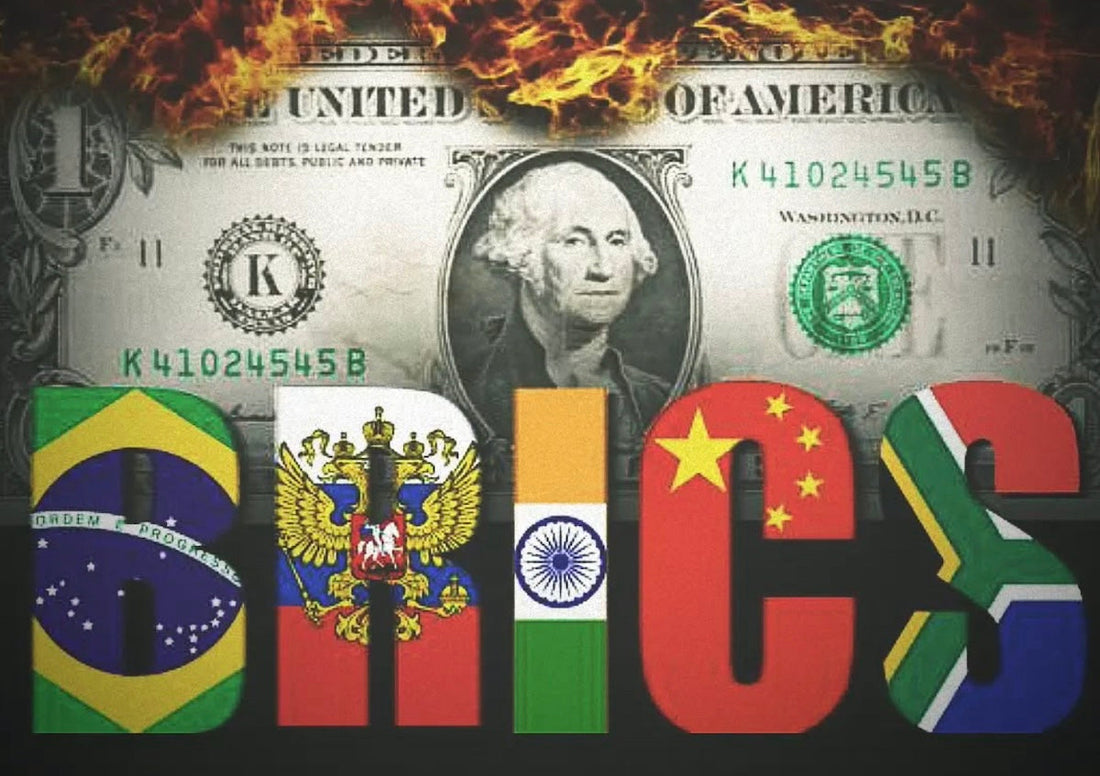Trump's BRICS Fear: Dollar Decline and Global Shift
Dr. Lena PetrovaTrump's tariff threats against BRICS highlight fears of dollar decline and a shift to a multipolar global order.

Donald Trump's recent threats against the BRICS economic alliance highlight growing concerns over the U. S. dollar's global dominance and the potential for a shift towards a multipolar world. The BRICS nations, including Brazil, Russia, India, China, and South Africa, are increasingly seeking to reduce their reliance on the U.S. dollar and establish alternative financial systems.
This push towards de-dollarization and multipolarity poses a significant challenge to U. S. hegemony and could have far-reaching implications for the global economy.
Highlights
- Trump threatens BRICS with tariffs for challenging dollar dominance.
- BRICS aims to create a multipolar financial system, reducing reliance on the dollar.
- De-dollarization efforts could weaken U. S. economic influence and increase inflation.
Read More: Xbox to be like Office: Everywhere, says Nadella
Top 5 Key Insights
• De-dollarization Gains Momentum: BRICS nations are actively exploring alternatives to the U. S. dollar for trade and financial transactions. This includes developing alternative payment systems like BRICS Pay and promoting trade in local currencies. Such measures aim to reduce dependence on the U. S. financial system and shield member countries from U. S. sanctions.
• Challenging U. S. Hegemony: The BRICS alliance represents a challenge to the existing U. S.-dominated global order. By advocating for multipolarity and seeking to create a more balanced financial system, BRICS is empowering the Global South and offering an alternative to countries wary of Western influence. This shift reflects a broader desire for a more equitable distribution of global power.
• Tariff Threats Backfire: Trump's threats of imposing tariffs on BRICS countries may inadvertently accelerate de-dollarization efforts. By attempting to punish nations seeking to reduce their reliance on the dollar, the U. S. risks further alienating potential allies and strengthening the resolve of BRICS members to pursue alternative financial arrangements. This approach could undermine U. S. economic influence and accelerate the decline of the dollar's dominance.
• Economic Consequences for the U. S.: A decline in the dollar's global dominance could have significant economic consequences for the United States. De-dollarization could lead to a decrease in demand for U. S. dollars, potentially increasing inflation and raising domestic borrowing costs. Additionally, a shift away from the dollar could weaken the U. S.'s ability to exert financial influence and impose sanctions on other countries.
• Shifting Global Power Dynamics: The rise of BRICS and the push for de-dollarization reflect a broader shift in global power dynamics. Emerging economies are increasingly asserting their influence on the world stage, challenging the traditional dominance of the United States and other Western powers. This trend suggests a move towards a more multipolar world order, where economic and political power is more evenly distributed.
Read More: Jessica Alba's Net Worth: Acting, Business & Real Estate
Expert Insights
Marta Fernandez, BRICS Policy Center Director: "The BRICS represents a proposal against hegemony. They are demanding multipolarity—financial, cultural, and political multipolarity. And the United States is fighting to maintain a hegemony that is in crisis."
Steve Bannon, Former White House Chief Strategist: "You can tell the president is pissed every time he looks at the BRICS de-dollarization effort."
Read More: AI Search Engines Favor Less Popular Sources: Study
Wrap Up
The growing influence of BRICS and its challenge to the dollar's dominance signal a potential reshaping of the global economic landscape. Trump's aggressive stance towards the alliance may inadvertently accelerate the very trends he fears, pushing nations towards greater financial independence and a multipolar world order.
The long-term implications of this shift remain uncertain, but it is clear that the U. S. faces a significant challenge to its economic hegemony.
Read More: Trump's $80B Nuclear Reactor Plan Fuels AI Ambitions
Author
Dr. Lena Petrova - A political scientist and geopolitical analyst based in Berlin, specializing in international relations and governance. Her contributions to Enlightnr offer deep insights into how political dynamics shape the world.
More to Explore
- Choosing a selection results in a full page refresh.
- Opens in a new window.




